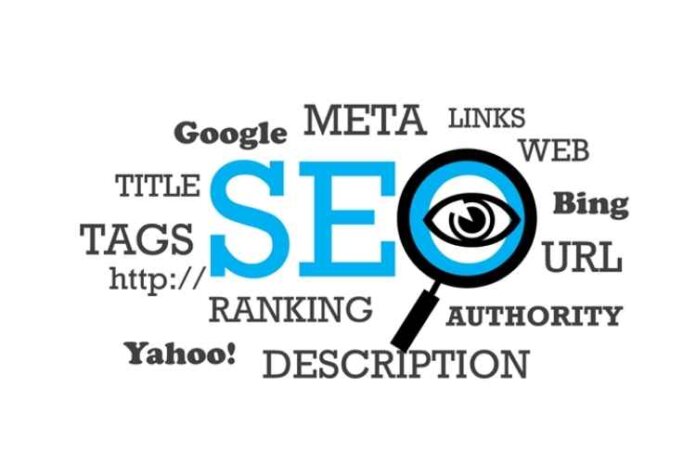
It’s not always easy to find traffic for a small business. Paid ads are expensive, and it’s hard to stand out on social media. Luckily, SEO is around as a long-term strategy for consistent website traffic.
On top of that, there’s more opportunity to get traffic in SEO than with other methods. Believe it or not, SEO has 20 times the traffic opportunities than paid ads.
This post has you covered if you want SEO help for small businesses. Keep reading to learn how to run an SEO campaign for a website.
Find the Right Keywords
Keywords are everything in SEO. They’re the terms people search for on Google to find the answers to their questions. If you aren’t smart with your keyword selection, you may end up targeting competitive terms that are too hard to rank for with a small business website.
You can rank much faster by finding questions people have that are underserved in the search engine. Think of the common questions in your industry and type them into keyword research tools. You can also use tools like People Also Ask to get different variations of your keywords.
Once you have your list, figure out how many estimated searches they get. Look up the terms yourself to see the results. Ideally, start by targeting the highest search volume keywords you can that have forum posts, Reddit pages, and other user-generated content that’s ranking on the front page.
This signifies that your keyword isn’t competitive and easier to rank for.
Get on Local Business Pages
You have more on your plate with SEO if you’re a local store owner. You want customers to find your websites on Google, but it’s hard for this to happen if you don’t have a Google Business Listing.
Signing up for Google My Business will help you generate your Google Maps listing. Sign up for an account and give Google your company’s address. They’ll send you a postcard with a PIN code to verify your account.
You can finish the signup process for your account once you have your code. Enter all your company data in your account, and you’ll show up on Google Maps for local customers. From there, you can focus on local SEO for small business to grow your rankings.
Optimize Your Website
Google takes page experience seriously these days. Now that Google understands more about user experience and satisfaction, it takes those factors into account when ranking websites.
That means you need to provide a great experience to the people visiting your website, whether they come from search engines or not.
To start, you’ll need to optimize your website speed. You don’t want people on slow connections waiting forever to view your content. Reduce your image sizes, minimize your website code, and lazy-load content that doesn’t need to show immediately when someone arrives.
The next place to optimize is your actual page experience. Keep your website simple and provide content to someone as soon as they arrive. If someone doesn’t find what they need, they’ll bounce from your website almost immediately. Google tracks that and will take notice if your bounce rate isn’t normal.
Build Backlinks
There will come a time when you start competing for more competitive keywords. Great on-site SEO won’t always be enough to help you rank on the front page in cases like this.
You’ll need to push more authority to your website to make this happen. Backlinks are what help make that happen.
Google considers a backlink like a vote for your website. On top of that, some websites are worth more than others. If a popular, well-established website gives you a link, it counts for more than a less-established website.
You’ll need to search for link opportunities to make this happen. For most people, guest posting is a great way to start. You’ll provide valuable content to other web admins and get a link for your efforts.
HARO is another excellent choice. Reporters on HARO constantly look for soundbites from established industry figures. If you provide a comment to a reporter on HARO, they’ll likely reward you with a link from an established news website.
Find an SEO Expert
There is a lot that goes into a great SEO strategy. You need a content strategy, backlink profile, and a fast website. If you’re busy running a business, you probably don’t have enough time to handle all the work.
Hiring a small business SEO consultant is a great way to fast-track your SEO campaign. An SEO expert can help with every aspect of SEO, which means you can focus on your most important work.
The good news is that there are countless SEO specialists in the world. A quick search will provide a list of the biggest SEO specialists in the world. If you want to stay local, search with a local keyword to narrow down your choices. Click here to see an example of SEO companies in a local area.
Whichever company you choose, make sure they have great reviews. It’s easy to say you’re great at SEO, but another to actually deliever results.
It’s also important to find a company that will stay in touch. SEO is a long process, which means you may need to wait months to see results. Try to find a company that provides regular updates on their work and results.
SEO Help for Small Businesses Is Right Around the Corner
SEO is a long process, so you can’t afford to waste any time getting started. Even if you don’t have any SEO experience, you can use a set of standard procedures to handle everything with success. If all fails, you can find SEO help for small businesses to get the expertise you need to rank on Google.
Of course, SEO is only one part of a digital marketing strategy for small businesses. Head back to the blog to discover more marketing tips that will help you drive traffic to your business website.











